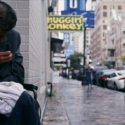Austin’s attempt to help its homeless citizens just got a big boost from two different sources. The City of Austin just received a grant of up to $500,000 annually for up to three years from the Bloomberg Philanthropies Innovation Team program. In addition, it was also just awarded $5.2 million from the U.S. Department of Housing and Urban Development to specifically address youth homelessness.
Bloomberg Philanthropies Innovation Team Grant
The Bloomberg grant will be used to help advance the mayor and the city council’s priority focus on ending homelessness, according to a city announcement.
A current pilot program is underway to address the growing issue — over 2,000 Austinites do not currently have a safe place to sleep, and the Homelessness Outreach Street Team formed in June 2016 to help. The coalition of police officers, behavioral health specialists, paramedics, and social workers formed to improve safety, facilitate access to services and housing, and prevent criminalization of homelessness. City Council approved funding for the pilot to continue for fiscal year 2017.
From the release:
Lessons from the pilot indicate that service design and mobile-friendly technology would help community service providers, police, and paramedics to meet those experiencing homelessness where they are, bridge gaps to services, and enable interoperability of data across sectors.
The City’s Office of Innovation will manage the team as a component of the Design, Technology, and Innovation Fellows program, which provides an opportunity for Austin’s passionate and civic-minded designers and developers to bring the principles, values, and practices of the technology sector into government.
Those interested in either joining or receiving updates about the city’s progress with this program are encouraged to sign up here.
U.S. Department of Housing and Urban Development Grant
Austin was one of only 10 communities (out of 130 applicants) to receive a grant to specifically address the city’s homeless youth issues, reports the Austin American Statesman. The $5.2 million award could potentially bring a new emergency shelter and more housing options for youth ages 18-24. The goal of the federal program, which spread $33 million across 10 communities, is to help end youth homelessness by 2020.
According to a report from local organization ECHO (Ending Community Homelessness Coalition), more than 2,000 students experienced homelessness during the 2015-2016 school year. A significant portion of those students are African-American and LGBT.
From the Statesman:
Over the next several months, many local nonprofits and agencies will come together to draft a comprehensive community plan to end youth homelessness, and they’ll turn to the expertise of a recently formed youth advisory council made up of homeless or formerly homeless youth to help guide them.
“The first thing we have to do as a community is to step back and make sure that we are all understanding the problem and then build out an effective menu of services,” Susan McDowell, LifeWorks executive director said. “No one agency will end youth homelessness; it’s only when we work as one that we can tackle this.”
Featured photo by Flickr user Dustin Ground, Creative Commons licensed








